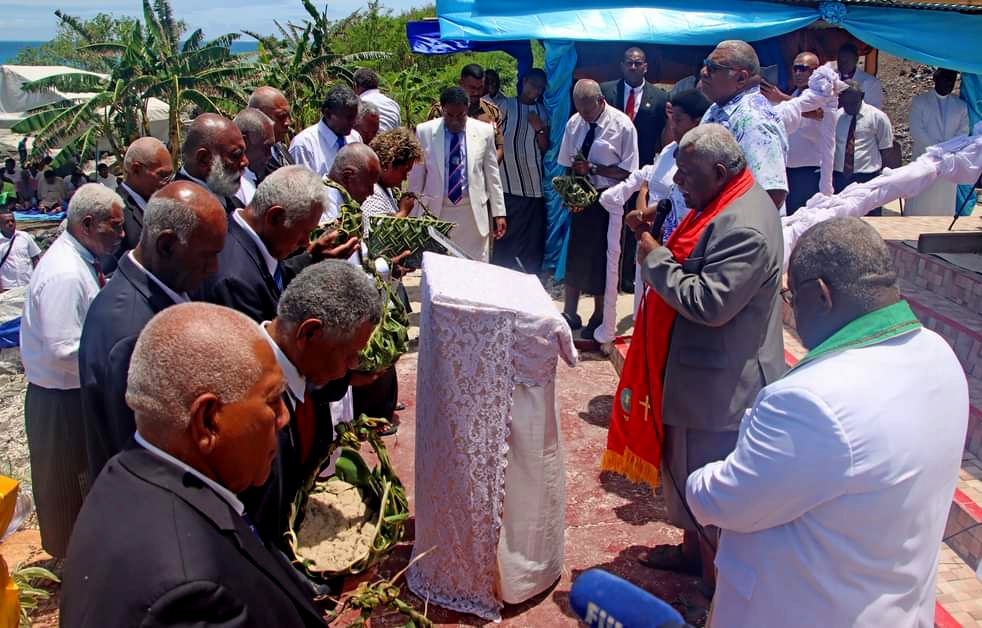The first settlers of Kia Islands are believed to be Tongans, according to the journal of the first Christian missionary who set foot on the island, John Davies.
His journal is kept at an archive at the London University— it details their trip from Tahiti to Australia. Following discovery of his journal history of Christianity in Fiji has been rewritten.
Their arrival was dated 26 years before the Wesley Missionaries, David Cargill and William Cross, got to Tubou Village, Lakeba in 1835.
This newfound fact was discovered by the Methodist Church in Fiji and Rotuma general secretary Reverend Jolame Lasawa.
“The first question, I asked the elders if some Kia looked like Tongans,” Mr Lawasa said. “Mr Davies was surprised to see Tongans living on the island.”
In the journal of Mr Davies, Mr Lawasa said Kia or Brown Island got its name from an American who resided on the island while preparing a cargo for one of his country vessels.
“Mr Davies was a Welsh missionary and school teacher,” he said.
“He heard of the work established by the London Missionary Society in Tahiti through his Calvinistic Methodist connections and volunteered to join the work.
“He left for the island in May 1800 and remained there for most of the next 55 years. He became superintendent of a school at Papara.”
Mr Davies arrived in Fiji waters on November 20, 1809, onboard the vessel Hibernia, captained by Captain William Campbell.
“They were heading for Bua when their ship ran aground on a reef off Daku Village.
“Among the missionaries were traders who came to buy sandalwood from villagers in Bua for the Chinese market. “The ship got damaged and had to be laid up for repairs at an islet off the Macuata coast from November 20, 1809 to January 23, 1810.”
Mr Lasawa said they had communion and last supper onboard the vessel.
“This was the first for Fiji. “After the last supper and communion onboard the ship by the missionaries, it is believed that when they had cleared the tablecloth, the crumbs were thrown into the sea.”
For those in Daku, he said, the supply of fish has never been a problem. “This very same spot, I’ve been told by men and women of the three villages in Kia, it never runs out of fish.”
He said Mr Davies wrote that he had sought the chief’s approval to reside on the island while the boat was being fixed.
“Several men went to Kia to prepare a hut for them to stay in.
“While they were ashore, Mr Davies wrote on his journal that they enjoyed their social and family worship without any interruption which they did not, nor could do onboard the ship.
“They began their day in the usual manner with a prayer meeting; met again in the forenoon, and Mr Davies engaged, read a sermon from Hebrew 13: 5.
“It reads, keep your lives free from the love of money and be content with what you have, because God has said, never will I leave you; never will I forsake you.”
He said they shared the gospel to the people of Kia.
“If there is a take-home message from the discovery, it should encourage people to strengthen their spiritual lives and realign themselves with God.
“People need to embrace the valuable piece of information, as it holds the history of the introduction of Christianity in Fiji.”
Then, he said on December 30, 1809, the American carpenter from the vessel Hope finished his work on the Hibernia and was supposedly ready for sail.
“Before they left, they held another sermon for the village. “According to Mr Davies diary, they experienced many trials and difficulties and many mercies and deliverances.
“On January 23, 1810 while sailing at a rate of six miles an hour, they left Fiji.”
This maiden trip was marked through a commemoration event last Sunday with the President Ratu Wiliame Katonivere as a chief guest.
It was attended by more than 300 people. Kia villagers have built a monument in tribute to the arrival of the London Missionary Society in Daku.



